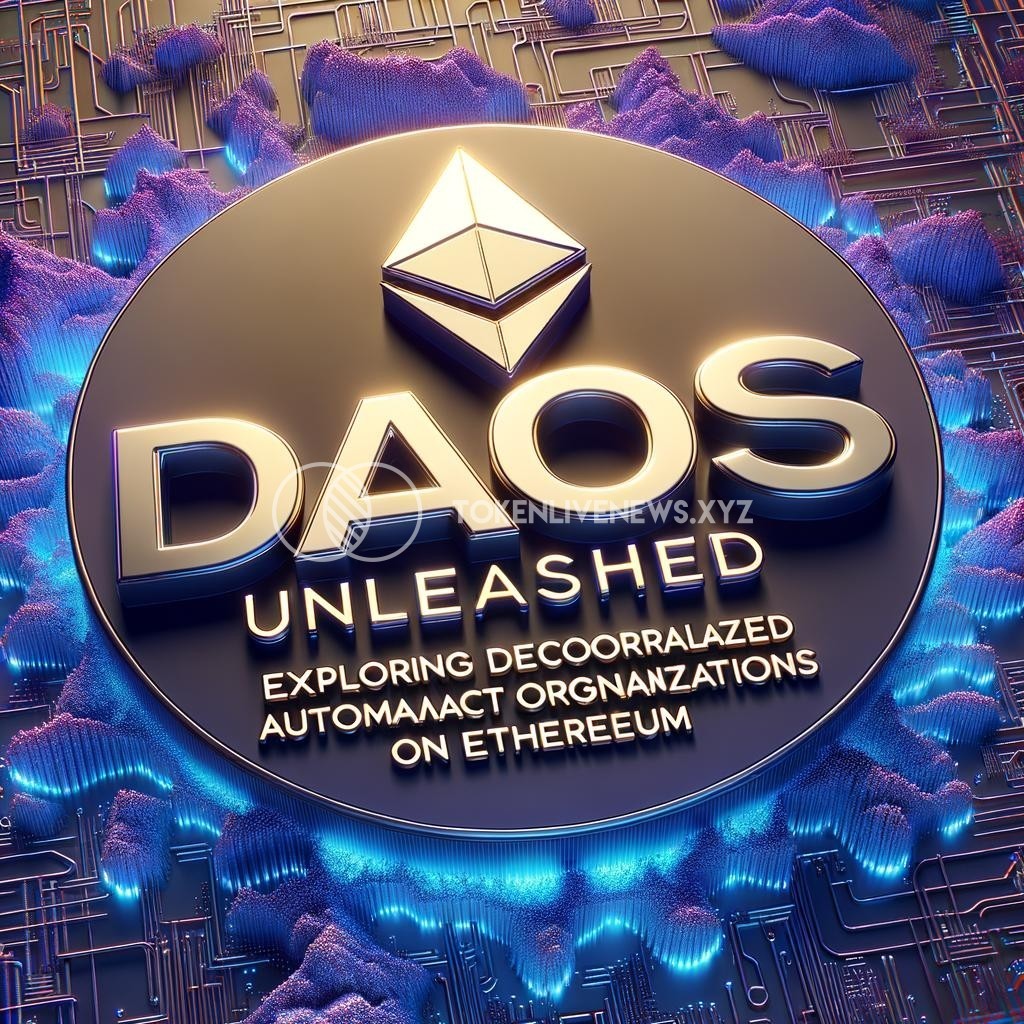DAOs Unleashed: Exploring Decentralized Autonomous Organizations on Ethereum
Introduction
In recent years, the concept of Decentralized Autonomous Organizations (DAOs) has gained significant attention within the blockchain space. Built on the Ethereum platform, DAOs leverage the power of smart contracts to create decentralized, autonomous entities that operate without the need for traditional hierarchical structures. This article aims to delve into the world of DAOs, shedding light on their potential, benefits, and challenges for the future of governance and organizational structures.
Understanding Decentralized Autonomous Organizations
DAOs are essentially self-governing entities that operate through code and consensus, rather than relying on a central authority. By utilizing blockchain technology and smart contracts, DAOs aim to create decentralized decision-making processes, empowering participants with equal voting rights and influence over the organization’s operations.
One of the core principles of DAOs is transparency. All transactions and decisions within the organization are recorded on the Ethereum blockchain, ensuring a verifiable and immutable audit trail. This transparency eliminates the need for intermediaries and fosters trust among participants.
Benefits of DAOs
- Democratized Governance: DAOs enable democratic decision-making, as each participant holds voting power proportionate to their stake in the organization. This inclusive approach ensures that decisions are made collectively, without the influence of centralized authorities or hierarchies.
- Increased Efficiency: By automating processes through smart contracts, DAOs streamline operations and reduce the need for third-party intermediaries. This leads to cost savings and increased efficiency within the organization.
- Open Participation: DAOs allow anyone with an internet connection and a stake in the organization to participate. This level of accessibility enables global participation and creates diverse communities that bring a wealth of ideas and perspectives to the table.
4. Incentivized Contributions: Through the use of blockchain-based tokens, DAOs incentivize participation and contributions from members. These tokens can represent ownership, voting rights, or rewards for specific tasks, encouraging active engagement and commitment to the organization’s success.
Challenges and Future Considerations
While DAOs exhibit immense potential, they also face a set of challenges that need to be addressed for widespread adoption:
- Regulatory Uncertainty: As with any emerging technology, DAOs face regulatory hurdles that need to be navigated. Issues such as legal liability, taxation, and compliance may require clear frameworks to ensure DAOs operate within the bounds of existing laws.
-
Governance and Decision-Making: Ensuring fair and effective decision-making processes within DAOs can be complex. Balancing the interests of all participants, preventing manipulation, and resolving disputes require careful design and implementation.
-
Security and Trust: While blockchain technology provides a robust security framework, DAOs are not immune to vulnerabilities. Smart contract bugs, malicious attacks, and the potential for majority attacks are factors that need to be effectively mitigated to maintain trust in the system.
Looking ahead, DAOs have the potential to revolutionize various industries, including finance, governance, and supply chain management. As the technology matures, it is essential for continuous collaboration between developers, regulators, and participants to address these challenges and unlock the true potential of DAOs.
Conclusion
Decentralized Autonomous Organizations on the Ethereum platform represent a paradigm shift in traditional organizational structures. The ability to create open, transparent, and democratic entities through smart contracts has the potential to reshape industries and empower individuals worldwide. While there are challenges to overcome, the promise of DAOs in fostering autonomy, efficiency, and global participation cannot be ignored. As more innovations and advancements unfold, DAOs may emerge as a viable solution for reimagining governance and organizational structures in the digital age.







